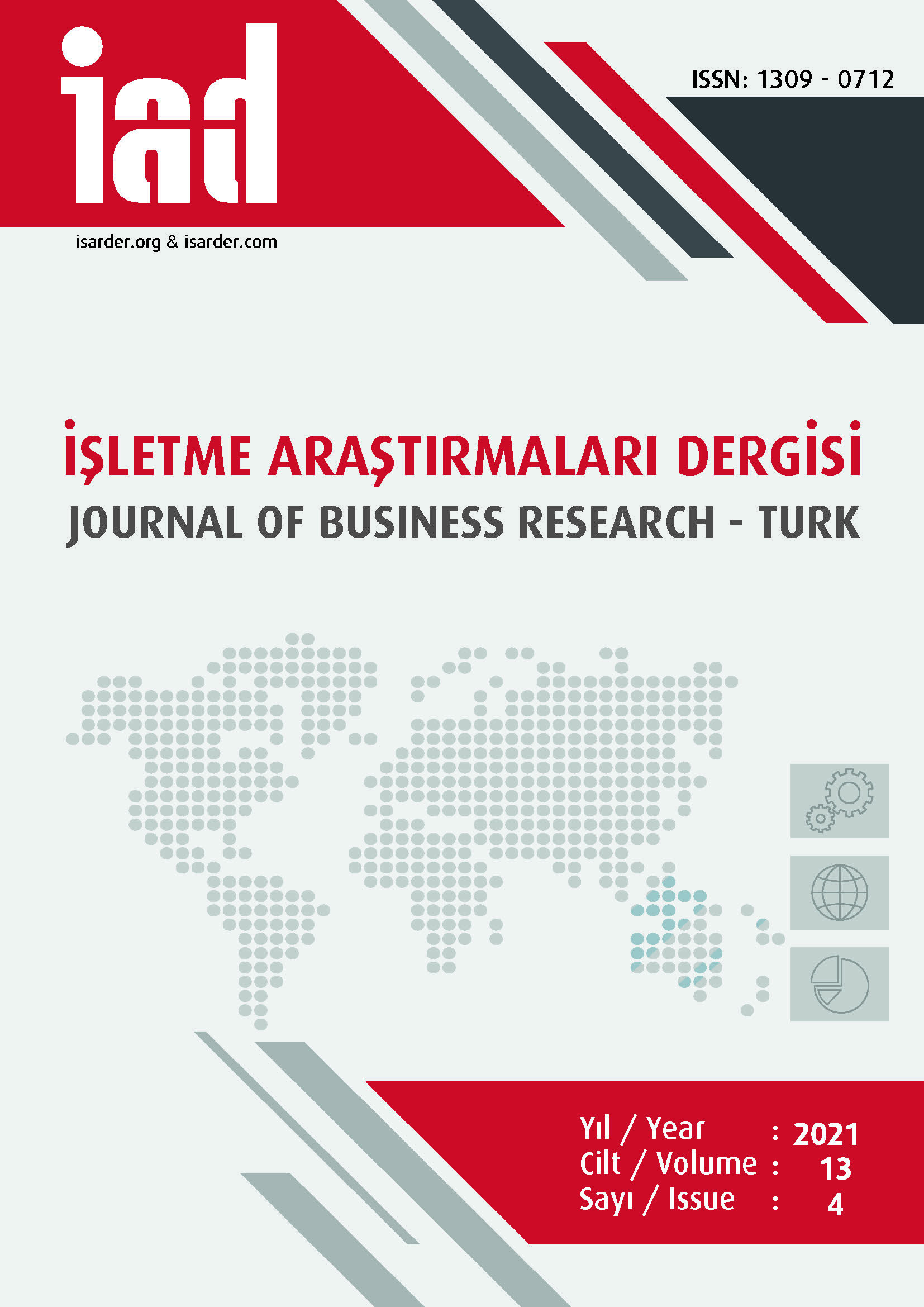(Do House Prices Affect Consumer Confidence?)
DOI:
https://doi.org/10.20491/isarder.2021.1305Keywords:
Consumer Confidence Index, House Price Index, NARDL modelAbstract
Purpose – The aim of the study is to determine the short and long term asymmetric effects of positive and negative shocks in house prices on consumer confidence. Design/methodology/approach – In the study, housing price index and consumer confidence index data were taken into consideration. The analysis period has been determined as 2010:01-2021:01. Nonlinear Autoregressive Distributed Lag (NARDL) model is used as the analysis method. Findings – As a result, it was determined that positive shocks occurring in the housing price index in the long run have a negative and statistically significant effect on the consumer confidence index. Negative shocks, on the other hand, have been found to have a positive and significant effect on the consumer confidence index. According to these results, it is seen that the increases in the housing price index have a negative effect on consumer confidence in the long run, and that their decrease has a negative effect on consumer confidence. It is concluded that the short-term coefficients between the housing price index and the consumer confidence index are positive and significant. Discussion – According to the findings, it was concluded that the consumer confidence index is sensitive to changes in house prices. Therefore, it can be said that policy makers should take into account housing prices as well as macroeconomic variables in ensuring consumer confidence.
Downloads
Published
How to Cite
Issue
Section
License

This work is licensed under a Creative Commons Attribution-NoDerivatives 4.0 International License.





